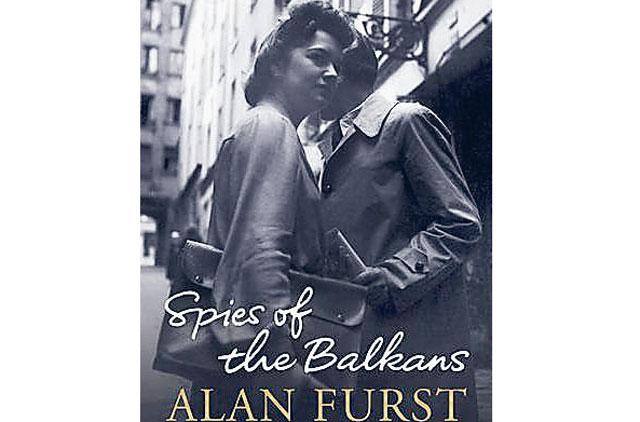
Alan Furst's Spies of the Balkans is the 11th in a kind of series — all set in Europe during what Auden called that "low dishonest decade" that concluded with the onset of the Second World War.
The novel is set primarily in the northeastern Greek city of Salonika, an ancient and famously polyglot place only recently returned to Athens' sovereignty by the second Balkan War.
The action occurs over the crucial seven-month period between late 1940 and the Nazi invasion of Greece in the spring of 1941. Furst's engaging protagonist is a "senior official" of the Salonika police, Constantine (Costa) Zannis. His personal qualities — a rare disinterest in bribes, an unfailing discretion and a wide-ranging competence — have attracted the notice and patronage of the city's 80-year-old police commissioner, Vangelis.
This legendary figure of immense power has selected him to head a special bureau whose duties are so politically sensitive that it goes unnamed. Even Costa's rank is — to most people he meets — mysterious, and he simply is known to all as "a senior police official".
From the book's opening pages, the 40-year-old Costa finds himself enmeshed in the spy wars for which the port city of Salonika was a particular hotbed. It is generally assumed that it is only a matter of time until the Axis forces push south into the Balkans and Nazi agents are operating with growing impunity throughout the area. So too is British intelligence, which already has its eye on Costa from a vantage point it would spoil the plot to disclose. He is a particular catch for anybody's spymasters: An adolescence spent working in his uncle's very shady Parisian antiques business not only has amplified Costa's natural Salonikan multilingualism, it also has made him understand how important it is to be a person who "knows people who know people".
That quality comes crucially into play when a beautiful, desperate German Jewish aristocrat, Emelia Krebs, persuades Costa to help her obtain Turkish visas for two Jewish children she has snatched from the Nazis' clutches. Emelia has prevailed on Costa's instinctive decency and reflexive loathing of the Fascist powers to help her run an escape line for Jews and anti-Nazi intellectuals through Hungary and the Balkans into Turkey.
Costa's sideline soon attracts the attention of the British, who strong-arm him into going to Paris to rescue a downed English airman in possession of scientific secrets that can't be allowed to fall into German hands. The arrangements go awry, however, and after killing one SS officer and wounding another, Costa is forced to call on his shady but loving uncle's connections with French gangsters to get out of occupied France.
When the Gestapo tumbles to Emelia's end of the escape line in Berlin and the Nazis invade Greece, there is a desperate rush to see whether Costa's family and all those he cares about can escape Salonika for the safety of Alexandria and Turkey. It would spoil the several credible plot twists at the climax to say more.
Furst does a remarkable job of re-creating the contingent qualities of the choices people had to make in an era when many leading thinkers and average individuals alike believed that democracy was finished and that the only realistic choice was between Left- and Right-wing authoritarianism. It does this author's fiction no disservice to say that his view of historical contingency is inflected by an American optimism about the persistence of human decency — and, equally important, about the profound influence of that decency, even when it is in the minority.
Spies of the Balkans is a thoroughly enjoyable, unexpectedly stimulating and truly accomplished novel that deserves a wide audience.









